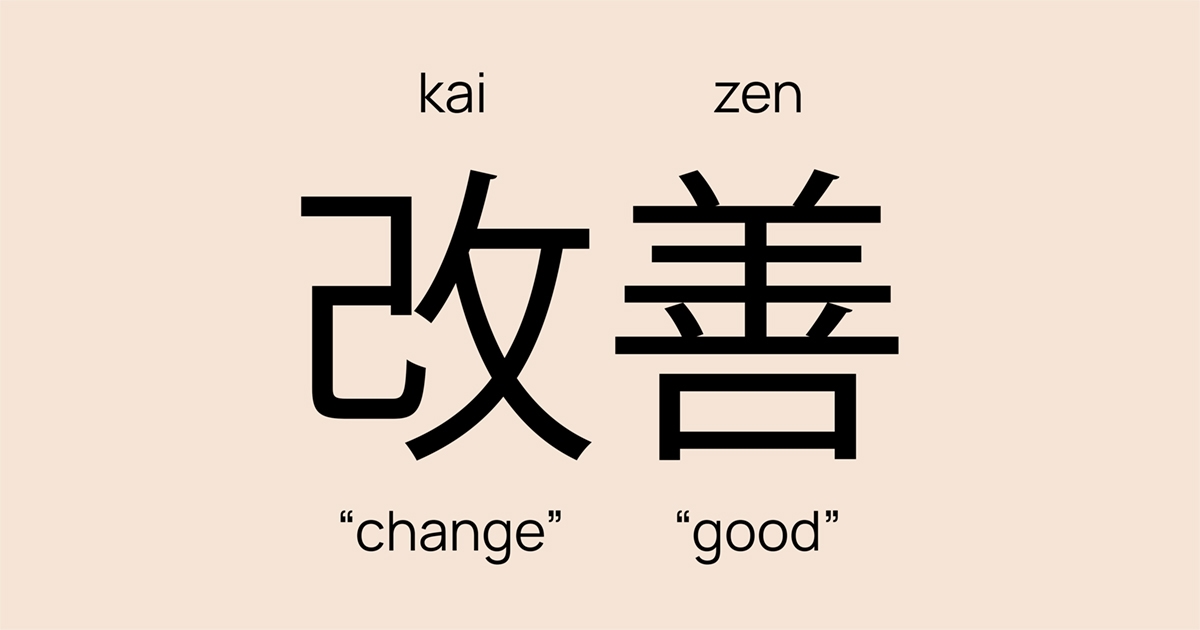
The idea of making small, daily improvements to create lasting, transformative change is both timeless and universal. Known in Japan as Kaizen, which means “improvement” or “change for the better”, is a philosophy originally developed as a business strategy for continuous, incremental improvements in quality and efficiency. Later, motivational figures like Anthony Robbins popularised a personal adaptation known as Constant and Never Ending Improvement (CANI), inspiring millions to apply these principles not only in the workplace but also in everyday life.
Origins of Kaizen and CANI
Kaizen has its roots in post-World War II Japan, where companies like Toyota adopted a systematic approach to problem solving and process improvement. Encouraging every employee to contribute small changes empowered the Japanese to dramatically enhance productivity and quality over time. This method was formalised through practises such as the PDCA Cycle (Plan-Do-Check-Act), which continues to guide many modern management strategies today.
Anthony Robbins later adapted these principles for personal development. In his talks, Robbins emphasised that instead of attempting large, overwhelming changes, we should commit to making consistent, small improvements in every area of our lives, from our health and relationships to our careers and personal growth.
Philosophy Behind Continuous Improvement
The philosophy is built on the following key principles.
- Incremental progress: Instead of waiting for the “big break”, small daily actions accumulate over time into significant achievements.
- Feedback and reflection: Regularly reviewing what worked, what didn’t, and learning from our experiences ensures that we evolve continuously.
- Empowerment: Whether in a corporate setting or at home, everyone can contribute ideas for improvement, fostering a culture of shared responsibility and growth.
- Resilience through change: Embracing small setbacks as learning opportunities builds mental resilience and a proactive mindset.
These ideas shift the focus from seeking perfection in one giant leap to celebrating progress in everyday actions. Taking the time to each day to note down what you learned, improved, and enjoyed can create a habit that propels continuous self-improvement.
Integration into Everyday Life
1. Start Small
Begin by choosing one area of your life to improve. Whether it’s your morning routine, communication skills, or physical health, set a modest, achievable goal. For example, you might decide to add a five-minute stretching session each morning.
2. Track Your Progress
Develop a simple habit of reflection. Ask yourself the following three questions each day.
- What did I learn?
- What did I improve?
- What did I enjoy?
This journalling practise, popularised by Anthony Robbins, helps cement the habit of continuous self-assessment and improvement.
3. Embrace the Process
Remember that change doesn’t happen overnight. Commit to the process even if progress seems slow at first. The cumulative effect of tiny improvements can lead to profound changes over time.
4. Apply the Concept at Work and Home
- Work: Look for small ways to streamline tasks, reduce waste, or improve communication. Whether it’s organising your desk, or optimising a workflow, every little bit helps.
- Home: Adopt habits that enhance your daily routine. Prepare meals more mindfully, organise your living space gradually, or learn a new skill in small steps.
5. Build Resilience
Every failure or setback is an opportunity to learn. Reframing mistakes as lessons helps build a resilient mindset that propels further improvement rather than discouraging you.
Practical Tips for Daily Improvement
- Set micro-goals: Instead of aiming to overhaul your life, set micro-goals that are realistic and measurable.
- Reflect regularly: Use a journal or an app to note your daily progress. Over time, reviewing your notes can reveal how far you’ve come.
- Celebrate small wins: Recognising and rewarding even the smallest achievements can motivate you to keep moving forward.
- Stay consistent: Consistency is key. Even on days when motivation is low, committing to a small action can prevent stagnation.
- Seek feedback: Ask friends, family, or colleagues for constructive feedback to uncover areas for improvement you might have overlooked.
Embrace the Principle
The beauty of Constant and Never-Ending Improvement, and its business counsin Kaizen, is that it makes improvement accessible. You don’t need radical changes or overnight success; you just need the willingness to make small, positive adjustments every day. Whether you’re inspired by Anthony Robbins’ motivational talks or the proven methods of Japanese business practises, the principle remains the same: keep moving forward, one small step at a time. Embrace continuous improvement, and over time, you’ll find that even the smallest changes can lead to a remarkable transformation in your life.